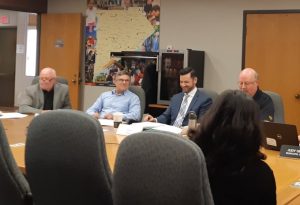Chatham-Kent’s elections compliance audit committee has rejected a series of claims against candidates in last fall’s municipal vote. 
Failed mayoral candidate Robert Powers accused a number of Ward 6 candidates and one other mayoral hopeful with failing to submit campaign contributions on their financial statements for Facebook Live interviews conducted by Ben Labadie.
Several candidates said they didn’t see any difference between the social media videos with Labadie and other traditional media interviews or forums that were conducted during the campaign.
After over two and a half hours of deliberations, the committee rejected all of the claims.
“Upon hearing the representations and the reading of written submissions and documents by the applicant, the committee hereby rejects the application,” said committee member Mike Lowther. “The application was not presented with compelling and credible information which raised reasonable probability that a breach of the campaign finance provisions of the Municipal Elections Act of 1996 has occurred.”
While some have characterized the complaints as frivolous, committee chair Dan Whittal doesn’t necessarily see it that way.
“I believe the committee performed its functions today and arrived at a conclusion that we were empowered to arrive at,” Whittal says. “I think that the process is one that’s set out pretty clearly in the (Municipal Elections) Act, and as long as we’re following the procedure that we are supposed to follow, then I think it’s easy to come to a conclusion when we consider all the evidence.”
Written statements from the committee will be finalized by June 2nd.
Powers has 15 days to appeal to the Ontario Superior Court.
It’s not the first time Powers has taken shots at this election – in November, he challenged the election results in Ward 1, however the case was dismissed in court.
This is the first time Chatham-Kent’s elections compliance audit committee, comprised of Mike Lowther, Mike Phipps, and newly-elected chair Daniel Whittal, has met. Paul Watson recused himself for the potential perception of conflict as Chatham-Kent’s integrity commissioner.
